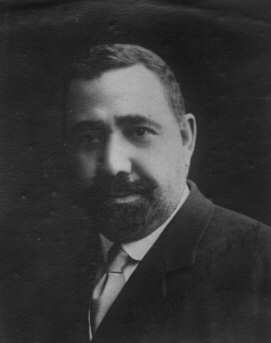Parliamentary elections were held in Czechoslovakia on 26 May 1946. The Communist Party of Czechoslovakia emerged as the largest party, winning 114 of the 300 seats with 38% of the vote. The Communist vote share was higher than any party had ever achieved in a Czechoslovak parliamentary election; previously, no party had ever won more than 25%. Voter turnout was 94%. The national results also determined the composition of the Slovak National Council and local committees.
Parliamentary elections were held in Greece on 19 August 1928. The result was a victory for the Liberal Party, which won 178 of the 250 seats.
Parliamentary elections were held in Greece on 5 March 1933. The pro-monarchist People's Party emerged as the largest party, winning 118 of the 248 seats in Parliament, ending the predominance of Eleftherios Venizelos' Liberal Party. The results triggered an attempted coup by Venizelist officers. A military emergency government under Alexandros Othonaios was instituted which suppressed the revolt, and was succeeded by a People's Party cabinet under Panagis Tsaldaris on 10 March.

A constitutional referendum was held in Greece on 29 July 1973. The amendments would confirm the abolition of the monarchy by the military junta and establish a republic. The proposal was approved by 78.6% of voters with a turnout of 75%.
A constitutional referendum was held in Greece on 15 November 1968. Voters were asked whether they wished to ratify a new constitution prepared by the dictatorial regime. It was approved by 92.1% of voters, with a voter turnout of 77.7%.

Constitutional Assembly elections were held in Bulgaria on 27 October 1946, electing members of the sixth Grand National Assembly, which was tasked with adopting a new constitution. The Fatherland Front, an anti-fascist coalition dominated by the Bulgarian Communist Party, had come to power in 1944 following a coup. Now that World War II was over and the monarchy abolished, the communists wanted to adopt a new constitution. They won a large majority, with 54% of the vote and 278 of the 465 seats. Voter turnout was 93%. This would be the lowest vote share that the Communists or the Fatherland Front would claim during the 43 years of the People's Republic of Bulgaria. In subsequent years, the Fatherland Front would claim to win elections with unanimous or near-unanimous support. This would be the last truly multi-party elections until 1990.

Parliamentary elections were held in Bulgaria on 18 November 1923. They followed a coup in June that had overthrown the Bulgarian Agrarian National Union government led by Aleksandar Stamboliyski, which had been elected in April. The result was a victory for the Democratic Alliance, which won 200 of the 247 seats. Voter turnout was 86%.

Parliamentary elections were held in Bulgaria between 6 and 27 March 1938, the first after the 1934 coup. The elections were held on a non-partisan basis, with the Bulgarian Agrarian National Union and Bulgarian Communist Party banned. Pro-government candidates won a majority of seats. Voter turnout was 69.5%.

Parliamentary elections were held in Latvia on 3 and 4 October 1931. The Latvian Social Democratic Workers' Party remained the largest party, winning 21 of the 100 seats. They were the last elections held under the Constitution of Latvia before the 1934 coup d'état and the last competitive elections held under Latvian law until 1993.

General elections were held in Liechtenstein on 4 April 1939. Although a new system of proportional representation had been introduced to pacify voters at a time when the country was under threat from neighbouring Nazi Germany, it was not used and the elections became known as the "silent elections" as no actual vote was held. Instead, the governing Progressive Citizens' Party and opposition Patriotic Union formed a coalition, assigning a roughly equal number of seats each, in order to prevent the German National Movement in Liechtenstein from acquiring any seats in the Landtag.

Parliamentary elections were held in Lithuania between 8 and 10 May 1926. The Lithuanian Popular Peasants' Union remained the largest party, winning 24 of the 85 seats in the third Seimas. They formed a left-wing coalition government with the Social Democratic Party of Lithuania, which was overthrown in a military coup in December. The Seimas was disbanded in 1927 and Lithuanian Nationalist Union leader Antanas Smetona was appointed President.

Constituent Assembly elections were held in Portugal on 28 May 1911, following a coup in October 1910. The result was a victory for the Portuguese Republican Party, which won 229 of the 234 seats.

Parliamentary elections were held in Portugal on 28 August 1910. However, before the results were confirmed, a coup d'état overthrew the monarchy on 5 October. In 1911 a Constituent Assembly was elected the following year.

General elections were held in Portugal on 28 April 1918, following a coup by Sidónio Pais in December 1917. The elections were boycotted by the Democratic Party, the Evolutionist Party and the Republican Union, who had won over 90% of the seats in the 1915 elections.

Parliamentary elections were held in Portugal on 10 July 1921. Prior to the elections, the Republican Union had merged with the Evolutionist Party to form the Republican Liberal Party (PLR). The elections resulted in the PLR becoming the largest in Parliament, winning 79 of the 163 seats in the House of Representatives and 32 of the 71 seats in the Senate.
The United People's Progressive Party was a political party in Bulgaria.

The National Liberal Party was a political party in Bulgaria.

The United Labour Social Democratic Party was a political party in Bulgaria.
The Estonian Socialist Workers' Party was a political party in Estonia.
The Democratic Centre, officially the Democratic Centre and Non-Partisan Public Workers, was a political party in Latvia in the inter-war period.









